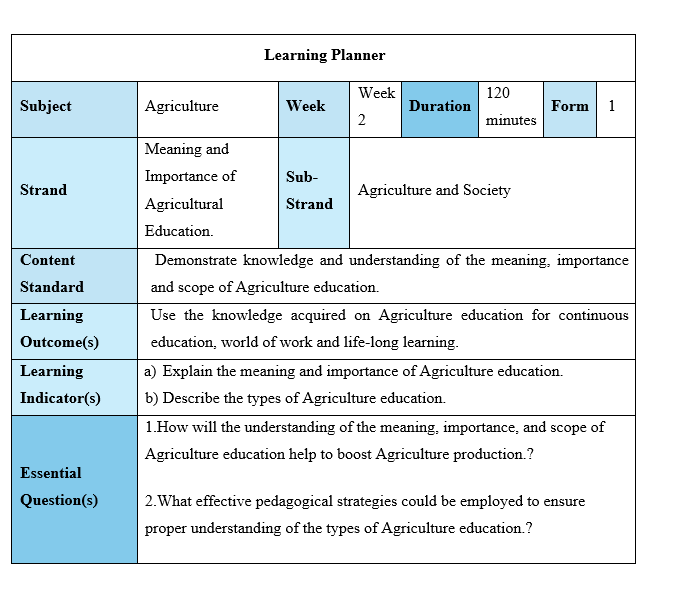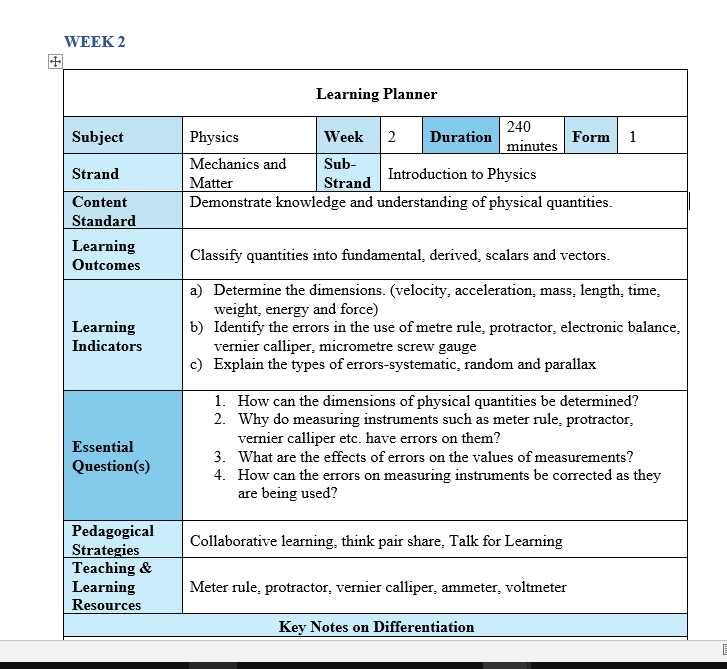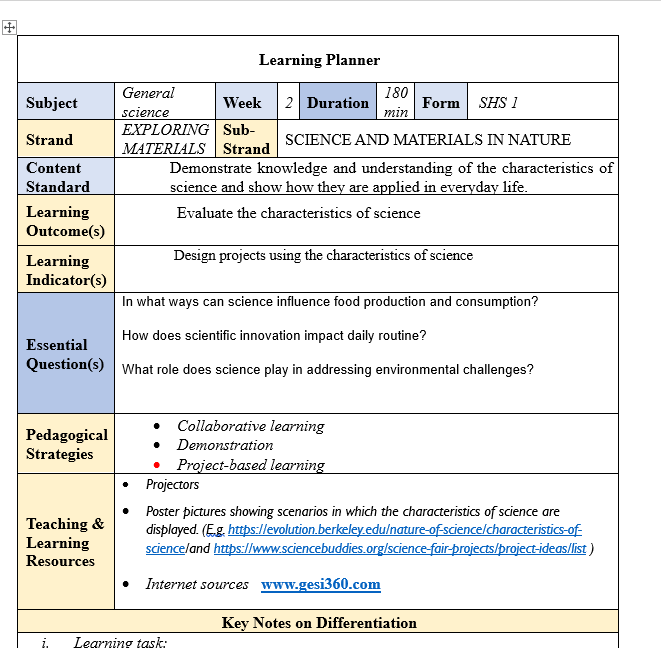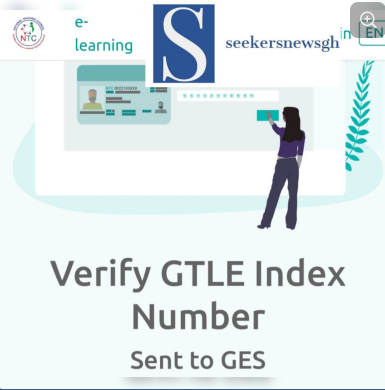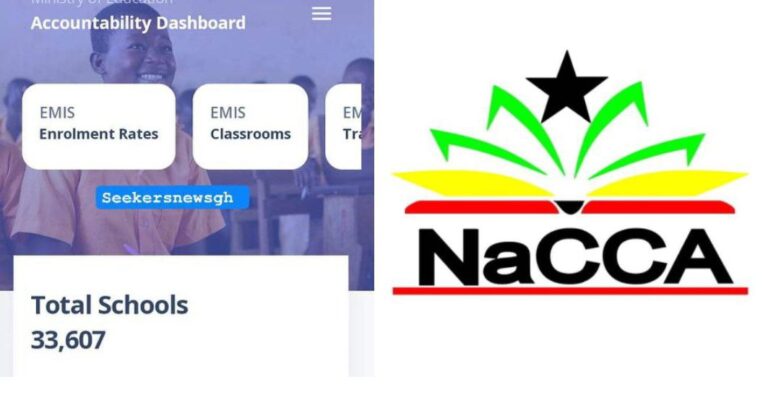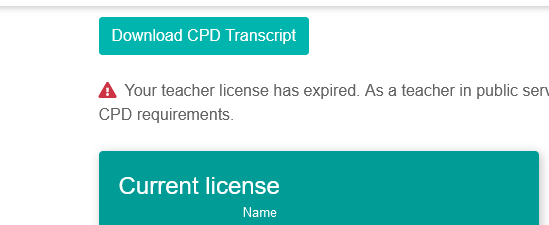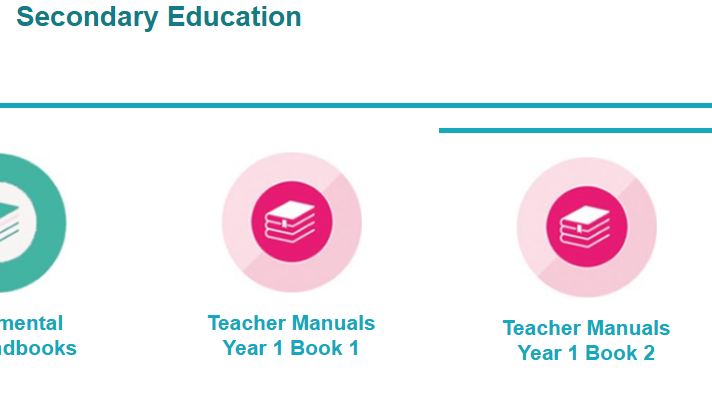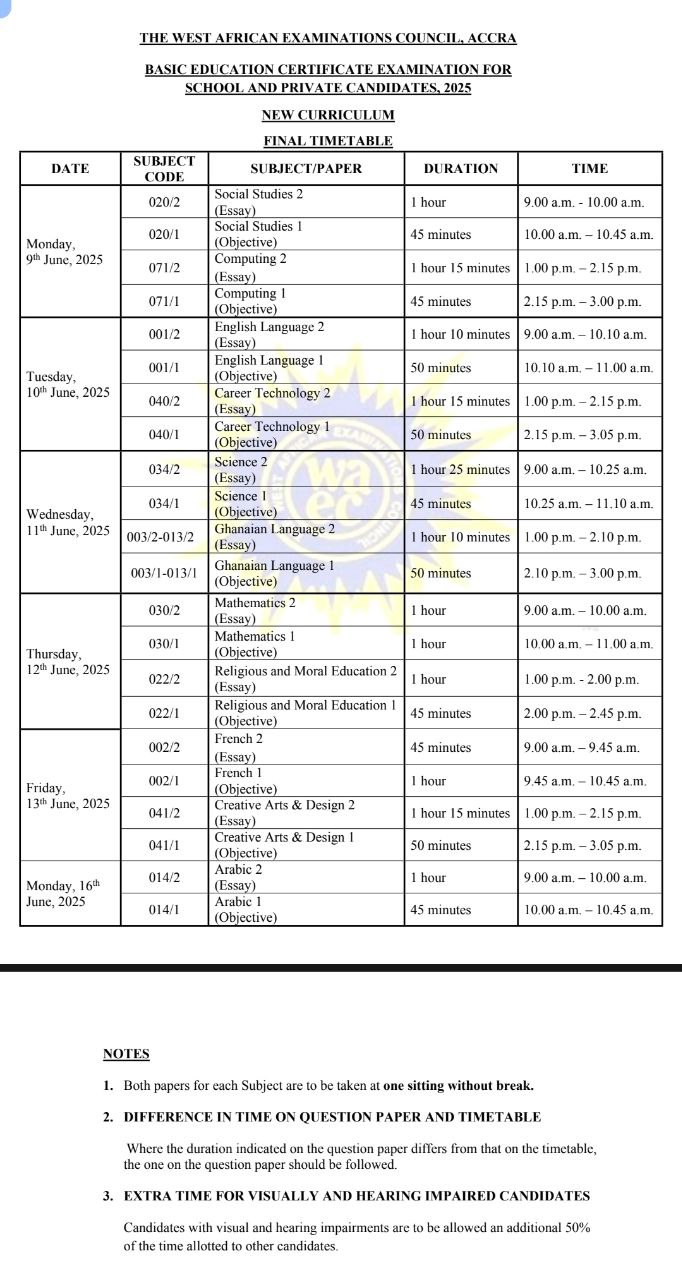This is a sample of a Populated Learning Planner, you can use this to prepare yours Download...
Ghana Teaching Standards
This is a sample of a Populated Learning Planner, you can use this to prepare yours Download...
This is a sample of a Populated Learning Planner, you can use this to prepare yours Download...
10 Free Online Courses You need to Take University of Cambridge 1 Learning and memory in the...
Download the BECE Marking Scheme for All Subjects (2024) As you prepare for the 2024 Basic Education...
ADDRESSING GES STAFF SALARY-RELATED ISSUES Management of Ghana Education Service, as part of its mandate of seeing...
Non-professional teachers must upgrade by December About 30,000 non-professional teachers in pre-tertiary institutions have been given a...
National Standardized Test NST for P4 and P6 this July 2024; Check Questions Format GHANA EDUCATION SERVICE...
NTC Teacher License Expiry: What’s Next? The first and second batches of teachers who wrote the Teacher...
Download the New Curriculum Syllabus and Teacher Manual for All Subjects (SHS|SHTS|STEM Schools) Book 1 and 2...

